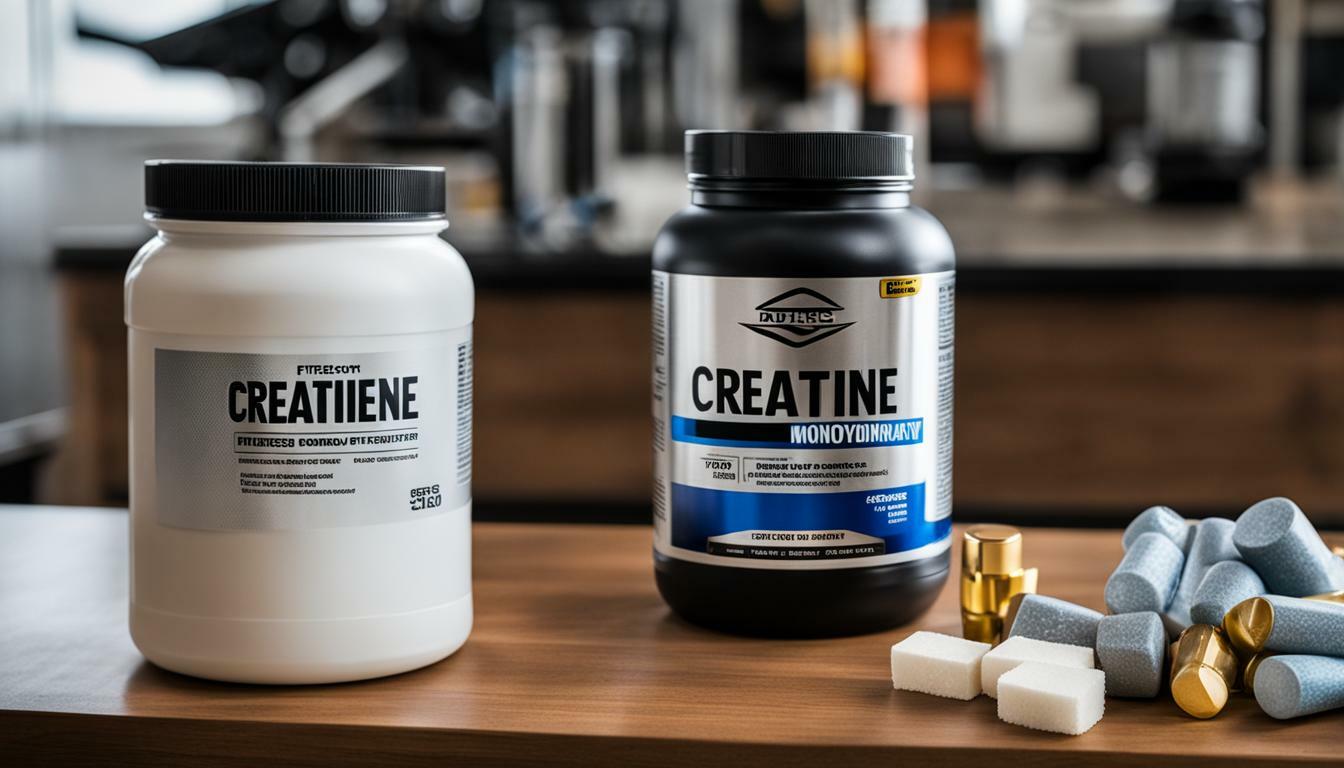The Unsung Hero: What is Vitamin C?
Despite its humble appearance in our everyday fruits and vegetables, vitamin C is far from ordinary. In scientific parlance, it’s known as ascorbic acid – a term derived from ‘a-‘ meaning ‘no’, and ‘scorbutic’, relating to scurvy, the disease caused by a lack of this very crucial nutrient. Primarily water-soluble, vitamin C is not produced by our bodies and hence needs to be replenished daily through diet or supplements.
Vitamin C plays the role of an antioxidant in our body, protecting cells from harmful molecules called free radicals. It also works in synchrony with enzymes to play a pivotal role in the synthesis of collagen— the most abundant protein providing structure and support to skin, blood vessels, bones and ligaments.
Your Health’s Best Friend: The Benefits of Vitamin C
If there was ever an accolade for ‘The Nutrient Most Likely To Be Taken For Granted’, it would undeniably go to vitamin C! The benefits attributed to this powerhouse nutrient are manifold.
From boosting immune function to aiding wound healing; from enhancing iron absorption to acting as a potent antioxidant – vitamin C does it all. Moreover, several studies have shown that high intakes of vitamin c may reduce the risk of chronic diseases like heart disease and cancer by combating oxidative stress that can damage cells.
As if that wasn’t enough, this versatile nutrient also helps maintain skin health by promoting collagen production for radiant and firm skin. The truth is simple – when it comes down to maintaining holistic well-being – we need vitamin C more than we think we do.
Regular Vitamin C: The Traditional Powerhouse
The ABC of Regular Vitamin C: What’s in a Pill?
Let’s begin by delving into the very essence of what constitutes regular Vitamin C. Commonly known as ascorbic acid, regular Vitamin C is a crucial nutrient that aids in the repair and growth of all body tissues. Most commonly found in an unassuming white pill, it provides the body with essential antioxidants to counteract harmful free radicals.
Each supplement tablet primarily consists of ascorbic acid – but it doesn’t work alone. Often, you’ll find your regular Vitamin C pill is fortified with bioflavonoids, compounds naturally accompanying vitamin C in fruits and vegetables, believed to enhance its absorption and therapeutic benefits.
From Mouth to Cell: The journey of Regular Vitamin C
Now that we’ve uncovered what’s inside that humble pill, let’s track its journey once ingested. Following the path from mouth to cell isn’t simple for regular vitamin C. When swallowed, it finds its way into your stomach where it battles stomach acids before being ushered into your small intestine. Herein lies the crux – our bodies can only absorb a certain amount at one time due to absorption limits set by sodium-dependent vitamin c co-transporters (SVCTs).
What doesn’t make this threshold? It has a one-way ticket out via urine- leading to wastage and less than optimal benefits.
The Bright Side and The Dark Side: Benefits and Limitations of Regular Vitamin C
There’s no denying the potent power packed in each dose of regular vitamin c. It’s pivotal for collagen synthesis (hello youthful skin!) wards off scurvy (not just for pirates), boosts immunity levels (bye flu season) and helps heal wounds faster. However, despite delivering these stellar health benefits, regular Vitamin C isn’t without its shortcomings.
The main limitation lies in its bioavailability- the portion that can be readily absorbed and used by the body. It’s quite a low-runner here, with only about 18% – 20% of it making through the absorption process.
This means, despite how mighty your dose is, only a fraction makes it across the finish line. Additionally, high doses can cause gastrointestinal discomfort– think upset stomach or diarrhea – not exactly rosy side effects!
Liposomal Vitamin C: The New Kid on the Block
Breaking Down Liposomal Vitamin C: Not Your Grandma’s Supplement
Before diving into the ins and outs of liposomal vitamin C, it’s essential to grasp what exactly ‘liposomal’ means. Derived from the Greek words ‘lipos’ (fat) and ‘soma’ (body), a liposome is essentially a tiny bubble or vesicle made out of the same material as a cell membrane – phospholipids.
These little bubbles can be filled with various substances, but in this case, we’re talking about vitamin C. Liposomal vitamin C isn’t just regular vitamin C dressed up in fancy packaging.
It’s an advanced form that uses nanotechnology to encapsulate the nutrient within these microscopic phospholipid spheres. This unique structure protects the vitamin C from degradation in the stomach and ensures more efficient delivery into your body’s cells.
Absorption Game-Changer: How Liposomal Delivery Works
Now that we’ve disassembled our liposome, let’s focus on how this high-tech delivery system redefines absorption standards. Regular Vitamin C has to navigate through a gauntlet of digestive processes before it reaches its cellular destination. Unfortunately, much of it gets lost along its journey due to poor absorption – think of it as throwing tennis balls at a brick wall; only very few will make it over.
In contrast, Liposomal Vitamin C carves an express lane straight to your cells. Its lipid-based casing allows it to merge effortlessly with your intestines’ cell membranes – bearing resemblance more closely to throwing water at that brick wall; most will seep through without hindrance.
Pros and Cons of Liposomal Vitamin C
Just like any newcomer, liposomal vitamin C brings its unique set of benefits and drawbacks. On the plus side, it offers superior bioavailability, meaning your body can utilize more of the vitamin C you consume.
It also tends to be gentler on the stomach than traditional supplements, reducing the risk of gastrointestinal discomfort. However, it’s not all sunshine and rainbows in liposome land.
Liposomal supplements are typically more expensive than their regular counterparts due to their complex manufacturing process. Moreover, because this technology is relatively new in the realm of supplements, long-term studies confirming its safety and efficiency are still in progress.
Showdown: Liposomal vs Regular Vitamin C
Digestive System Drama: Absorption Rates Compared
When it comes to the human body’s complex digestive system, absorption is key. The more efficiently a nutrient is absorbed, the better it can contribute to our health.
Traditional vitamin C supplements are typically less effective in this regard due to their water-soluble nature. Our bodies can only absorb a certain amount at once; anything excess is excreted out, thus potentially leading to diminished returns for high-dose intakes.
Liposomal vitamin C, however, turns this narrative on its head with its unique absorption mechanism. The liposomes act as protective bubbles around the vitamin C molecules, shielding them from degradation in the digestive tract and ensuring an enhanced rate of absorption in the intestines – some studies suggest as much as 90% compared to regular vitamin C’s 20%.
Efficiency Battle: Which Packs a Greater Nutritional Punch?
In terms of pure potency – that is, how much nutritional value you’re getting per unit – there’s an emerging consensus that liposomal delivery might have an edge over traditional forms. Simply put, more absorption equals more utility.
By evading breakdown in the stomach and being delivered straight into cells via liposomes, this version of vitamin C can provide your body with higher doses of usable nutrition. But efficiency isn’t just about potency; it’s also about sustainability.
Regular vitamin C often needs frequent top-ups throughout the day due to its rapid excretion – not so with liposomal forms. Thanks to their slow-release action and superior bioavailability, they offer sustained benefits with fewer dosages required.
Side Effects Showdown: Comparing Potential Downsides
Despite their differences in efficacy and absorption rates, both regular and liposomal forms of Vitamin C are generally safe for consumption. But like with any supplement, potential side effects can occur.
Regular vitamin C is infamous for causing digestive discomfort when consumed in large doses, owing to its water-soluble nature. On the other hand, liposomal vitamin C is gentler on the stomach due to its lipid-based encapsulation and efficient absorption.
The possibility of digestive discomfort could be significantly minimized. However, it’s worth noting that there are still questions about long-term effects of liposomal intake – after all, this form of delivery is still relatively new on the scene.
Real Talk – Price Point Comparison
A Candid Conversation About Vitamin C Costs
The cost of vitamins is a significant factor for many people, and it can often be a determining point in our decision-making process. When comparing the price tags of regular Vitamin C and Liposomal Vitamin C, it’s salient to note that they are poles apart. While regular vitamin C is often found at an inexpensive price point, liposomal vitamin C tends to be more expensive.
But why does this notable disparity exist? To answer that question, we must delve into the production process.
Liposomal Vitamin C requires a more intricate manufacturing procedure to encapsulate the vitamin within liposomes. This complex process significantly bumps up the production cost, which is then passed onto consumers.
Budget Breakdown – Cost of Regular vs Liposomal Vitamins
Penny for Your Thoughts: A Deep Dive into Vitamins’ Dollars and Sense
Let’s break down what you’re actually getting for your buck when you compare these two forms of Vitamin C. With regular vitamin C, affordability reigns supreme; you can get hundreds of tablets for just a few dollars in many cases. Yet with its low bioavailability, much of it might end up wasted as your body cannot fully absorb it. On the contrasting end lies Liposomal Vitamin C with its steep price tag.
However, keep in mind that while you’re paying more upfront, you may also be getting more value over time due to its increased absorption rate; essentially meaning more bang for your buck! In sum, if money is tight and you need to adhere strictly to budget constraints, regular Vitamin C will undoubtedly fulfill your requirements without breaking the bank.
But if optimal absorption ranks high on your priority list and you are willing (and able) to invest more bucks upfront knowing it yields superior benefits down the line—Liposomal Vitamin C could be your winner. In the end, it all comes down to weighing costs against benefits and deciding what matters most to you—this is your health journey after all!
Choosing What’s Best for You: A Vitamin C Tailor-Made for Your Life
As we pull the curtain on this explorative narrative, the crucial understanding entwines not around a duel between regular vitamin C and its liposomal counterpart, but about choosing a supplement that aligns best with your unique lifestyle and health needs. There isn’t an unequivocal winner here, as both forms of vitamin C have their respective strengths and limitations. For instance, if you’re someone who prioritizes cost-effectiveness above all else, regular vitamin C might be your go-to option due to its accessibility and lower price point.
However, if absorption efficiency is what you’re after and you don’t mind investing a little extra for enhanced bioavailability, liposomal vitamin C proves to be quite the standout. It’s worth mentioning that those with sensitive stomachs may find solace in the liposomal form as it bypasses the gastric distress often associated with high doses of its traditional counterpart.
Your Health Needs: The Litmus Test for Your Vitamin Choice
When tailoring your supplement choice to your health needs, consider factors like your daily diet, overall health status, and specific wellness goals. For example, if your diet hardly includes citrus fruits or other sources rich in vitamin C or if you’re battling a persistent cold or recuperating from surgery—conditions that often require higher amounts of this essential nutrient—opting for liposomal vitamin C can be beneficial due to its superior absorption rate.
On the contrary, if you’re generally healthy or already consuming a balanced diet laden with plenty of natural sources of vitamin C (think bell peppers and guavas) but just want an extra boost without breaking the bank—regular supplements could suffice. Remember: it’s always wise to consult with a healthcare provider before starting any new supplement regimen—they can provide personalized advice grounded in an understanding of your unique physiology and health history.
The Great ‘C’ Debate: Settling the Dust
My dear readers, the theatrical ‘C’ debate is much like a riveting Shakespearean drama—full of suspense, twists, and revelations. But as the final act concludes, we realize it’s not about one form outdoing the other but rather understanding their unique attributes.
Realistically speaking, both traditional vitamin C and liposomal vitamin C can exist in harmony in your wellness regimen—it all depends on personal preference and individual health needs. And so, as you navigate through the world of supplements—vitamin C or otherwise—I hope this information arms you with the knowledge to make informed decisions that best serve your well-being.
And remember—with or without supplements—if you’re eating a balanced diet rich in whole foods, getting regular exercise and enjoying plenty of restful sleep—you’re already well on your way to a healthier life. Shine on!



